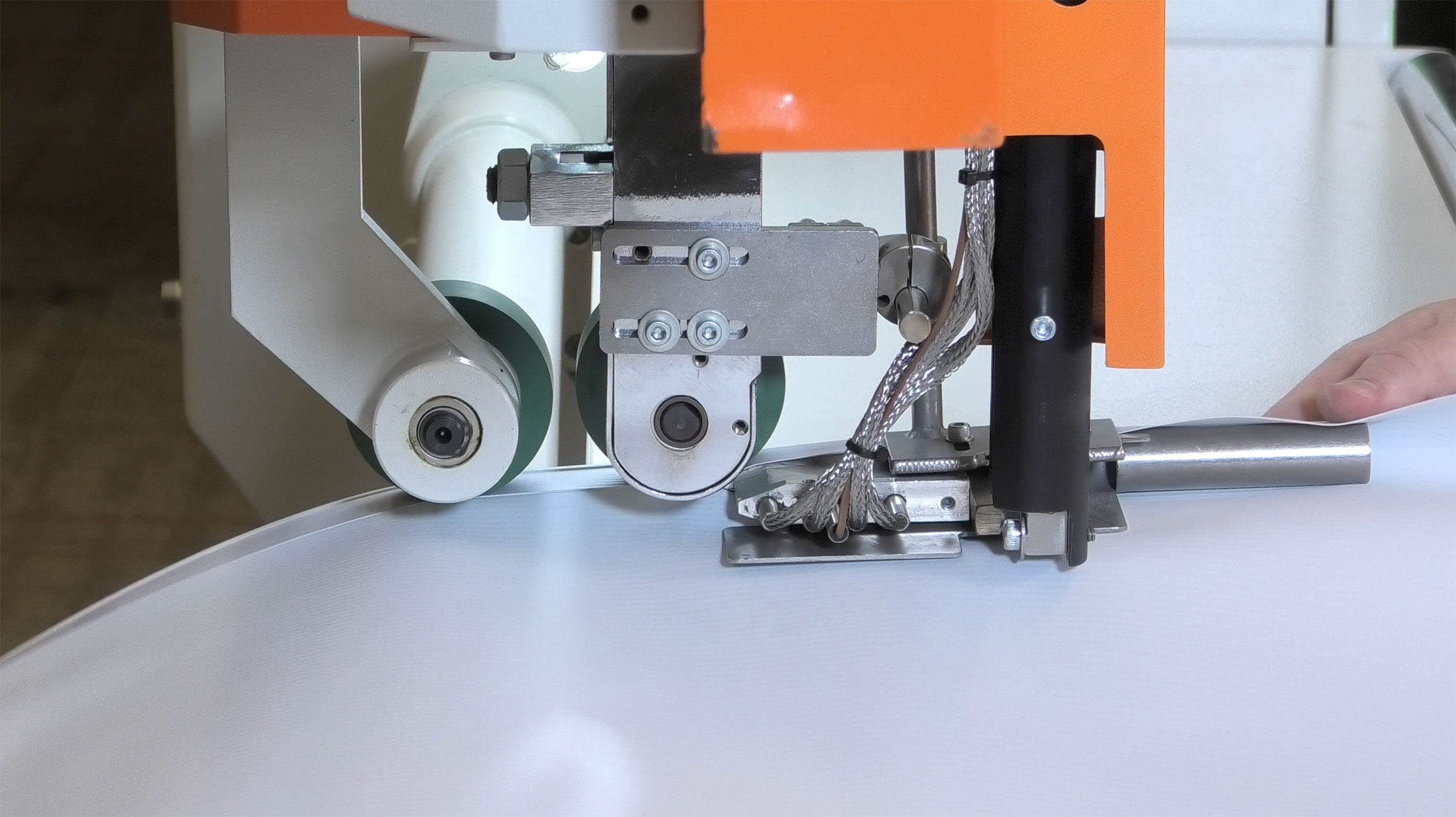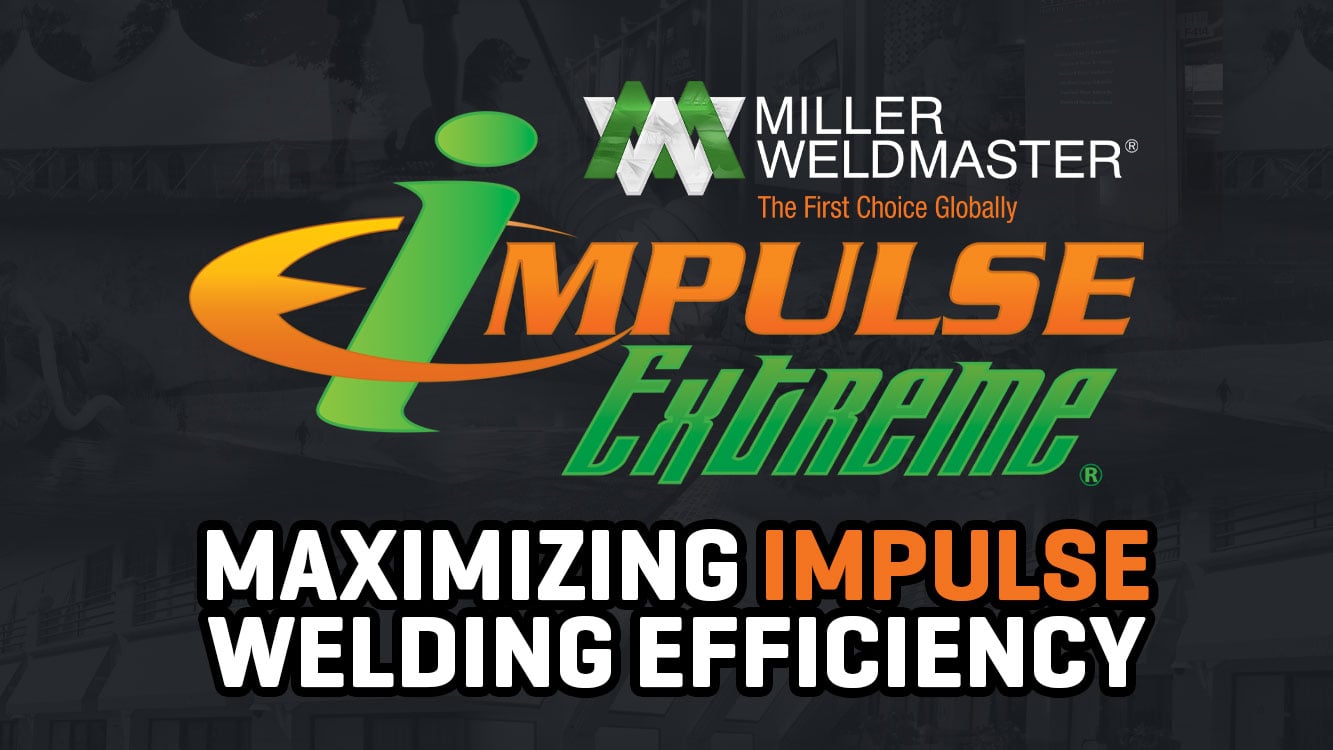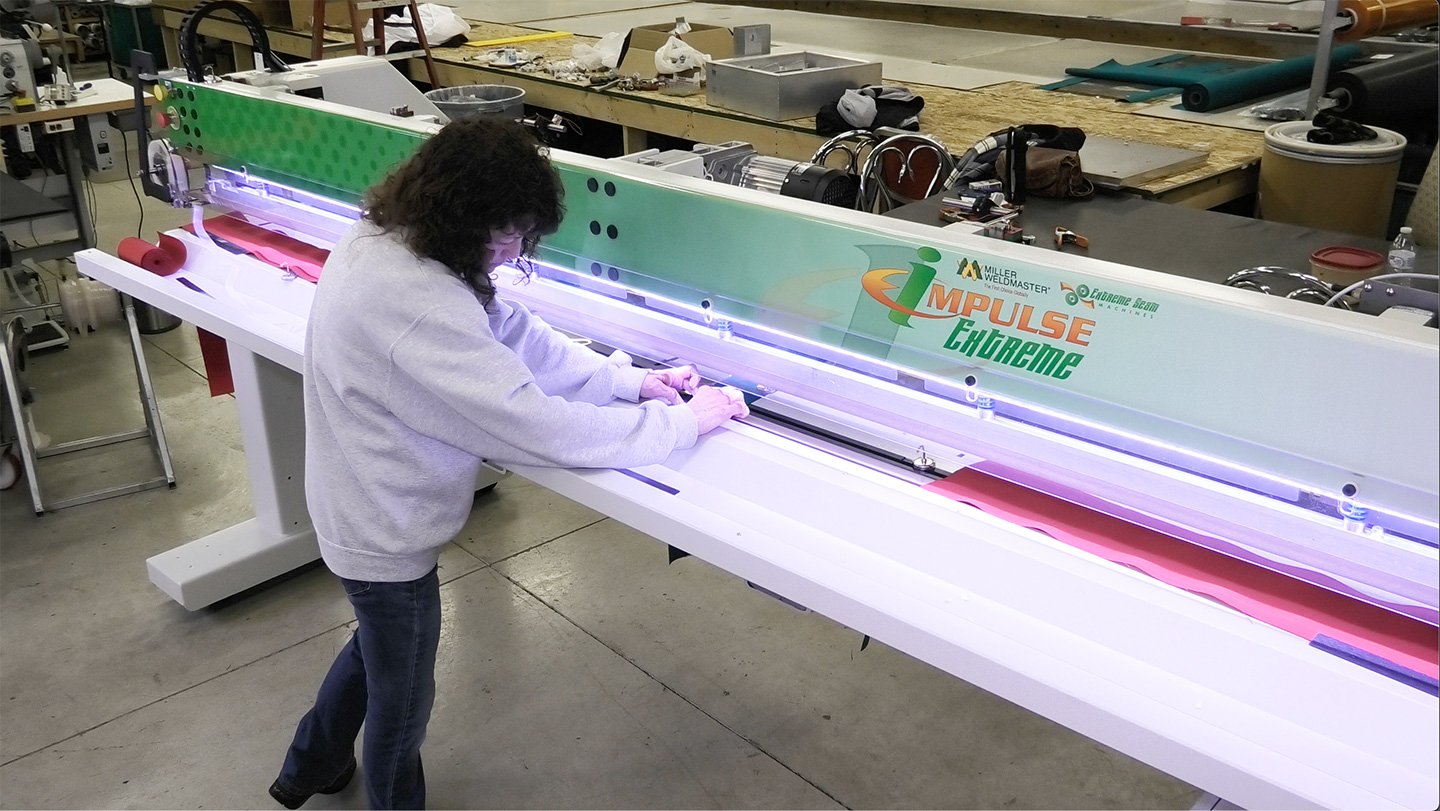Výběr správného svářecího stroje je pro každou firmu, která se zabývá výrobou nebo zpracováním, zásadní. Efektivita, kvalita a hospodárnost svařovacích operací významně závisí na typu zvoleného stroje. Tento průvodce se zabývá různými typy svářeček, klíčovými faktory, které je třeba zvážit, a poskytuje poznatky, které vám pomohou učinit informované rozhodnutí. Objevte dokonalé svařovací zařízení pro potřeby vaší firmy tím, že prozkoumáte různé možnosti strojů a zajistíte, abyste pro své projekty vybrali ten nejvhodnější.
Rozumíme různým typům svářecích strojů
Výběr správného svařovacího stroje pro vaši firmu zahrnuje znalost řady dostupných technologií a jejich specifických aplikací. Na stránkách Miller Weldmaster se specializujeme na horkovzdušné, horkovzdušné klínové, radiofrekvenční (RF) a impulzní svářečky, z nichž každá je určena pro konkrétní úkoly a materiály. Výběr vhodného typu je rozhodující pro maximalizaci efektivity, kvality a hospodárnosti vašich svařovacích operací.
Přehled typů svařovacích strojů
Zde se podrobně seznámíte s různými technologiemi svařování, které nabízí Miller Weldmaster:
- Horkovzdušné stroje: Využívají ohřátý vzduch k tavení materiálů v místě svaru.
- Stroje s horkým klínem: Použijte vyhřívaný kovový klín pro konzistentní tepelnou aplikaci.
- Radiofrekvenční stroje: Využívají vysokofrekvenční elektromagnetické vlny k ohřevu a utěsňování.
- Impulsní stroje: Generují rychlé dávky tepla prostřednictvím elektrických impulsů pro přesné svařování.
Každý typ je přizpůsoben potřebám různých průmyslových odvětví, od automobilového po textilní, a zajišťuje odolné a vysoce kvalitní svary.
Horkovzdušné svařovací stroje
Horkovzdušné svářečky jsou vysoce přizpůsobivé nástroje, které směrují proud horkého vzduchu, aby roztavil plastový materiál ve spoji a umožnil jeho spojení a ztuhnutí do pevného spoje. Tato metoda je nejen účinná pro různé tloušťky a typy materiálů, ale umožňuje také nastavení teploty a proudu vzduchu podle konkrétních potřeb projektu. Je zvláště výhodná pro výrobky, jako jsou průmyslové závěsy, interiéry automobilů a reklamní poutače, kde je nejdůležitější pružnost a pevnost. Horkovzdušná technika je proslulá svou spolehlivostí a snadným použitím, takže je oblíbenou volbou mezi profesionály, kteří vyžadují všestranné řešení svařování.
Svařovací stroje s horkým klínem
Při svařování horkým klínem se používá zahřátý kovový klín umístěný mezi dva termoplastické materiály. Při průchodu materiálů přes klín dochází k jejich zahřívání a následnému spojování pomocí přítlačných válečků za klínem. Tato metoda poskytuje výjimečnou kontrolu nad teplotou a rychlostí, takže je ideální pro velkoobjemové aplikace vyžadující konzistentní, dlouhé a rovné švy. Svářečky s horkými klíny jsou obzvláště účinné při výrobě geomembrán, zemědělských krytů a dalších výrobků vyžadujících vodotěsné těsnění. Díky své přesnosti a účinnosti jsou nepostradatelné ve scénářích, kde je rozhodující integrita a pevnost výrobku.
Radiofrekvenční (RF) svářecí stroje
Radiofrekvenční svařování, známé také jako dielektrické svařování, využívá vysokofrekvenční elektromagnetické vlny k vytvoření molekulárního rozruchu v materiálu, který vytváří teplo a taví materiál bez přímého kontaktu. Tato technologie je vhodná zejména pro materiály, jako je PVC, vinyl a polyuretan - běžné při výrobě produktů, jako jsou lékařské vaky, psací potřeby a nafukovací vory. RF svařování zajišťuje hluboký průnik a rovnoměrný ohřev, které jsou rozhodující pro dosažení pevných, rovnoměrných a estetických těsnění. Díky schopnosti svařovat složité tvary a udržet vysokou rychlost výroby je RF svařování také preferovanou volbou pro průmyslové aplikace vyžadující přesnost a škálovatelnost.
Impulsní svařovací stroje
Impulsní svářečky pracují tak, že dodávají krátké, řízené dávky elektrické energie k ohřevu svařovacího prvku, který následně ohřívá materiál pouze v místě kontaktu. Tato metoda je neuvěřitelně účinná u choulostivých nebo tenkých materiálů, protože minimalizuje tepelné působení na zbytek materiálu, čímž snižuje riziko deformace nebo degradace. Impulsní svářečky se běžně používají v obalovém průmyslu, k utěsňování sáčků a obalových materiálů a v aplikacích, kde je vyžadována přesnost detailů a minimální tepelný dopad. Mezi hlavní výhody impulsního svařování patří jeho energetická účinnost, přesnost svarů a možnost rychlé úpravy nastavení pro různé materiály a tloušťky.
Každá svařovací technologie nabízená společností Miller Weldmaster je navržena tak, aby vyhovovala specifickým potřebám průmyslu, a poskytuje podnikům nástroje k dosažení optimálních výsledků ve výrobních a konstrukčních procesech.
Klíčové faktory, které je třeba zvážit při výběru svářečky
Výběr správné svářečky pro vaši firmu zahrnuje pečlivé posouzení několika zásadních faktorů. Zde se hlouběji seznámíte s tím, co byste měli zvážit, abyste zajistili výběr nejvhodnější svářečky pro své konkrétní potřeby.
Typ a tloušťka materiálu
Zásadní je znát materiály, se kterými budete pracovat, a jejich tloušťku. Choulostivé materiály, jako jsou tenké plasty nebo tkaniny, často vyžadují přesné metody svařování s nízkým zahříváním, jako je impulsní nebo horkovzdušné svařování, aby bylo zajištěno bezpečné utěsnění bez poškození. Naopak silnější materiály, jako jsou těžké plasty nebo geomembrány, mohou vyžadovat robustnější metody, jako je svařování horkým klínem nebo radiofrekvenční svařování, které jsou schopny účinně zvládnout hmotnost a namáhání materiálu.
Svařovací prostředí
Prostředí, ve kterém bude svařování probíhat, významně ovlivňuje výběr stroje. Vnitřní prostředí obvykle nabízí kontrolovanější podmínky, což je ideální pro stroje, které mohou být citlivé na proměnné prostředí. Je však třeba vzít v úvahu prostorová omezení a větrání. Svařování ve venkovním prostředí vyžaduje stroje, které odolávají proměnlivým povětrnostním podmínkám, jako je vítr a vlhkost. Stroje používané v omezených prostorách by měly být přenosné a kompaktní a měly by být vybaveny bezpečnostními opatřeními, která zabraňují přehřátí a umožňují bezpečný provoz.
Požadavky na napájení
Svářečka, kterou si vyberete, musí být kompatibilní s vaším dostupným zdrojem napájení, pokud jde o požadavky na napětí a fáze. To je důležité zejména u průmyslových strojů, které mohou vyžadovat nastavení, jež není v menších dílnách k dispozici. Kromě toho hraje významnou roli energetická účinnost; účinnější stroje mohou pomoci snížit provozní náklady, což je důležité zejména v podnicích, kde je svařování častou činností.
Hodnocení funkcí svářecího stroje
Při výběru svářečky je nezbytné posoudit její vlastnosti, abyste zajistili nejen kvalitu a efektivitu svařování, ale také bezpečnost obsluhy. Zde se blíže podíváme na kritické vlastnosti, které je třeba zvážit:
Pokročilé ovládací prvky a nastavení
Moderní svařovací stroje jsou vybaveny pokročilým nastavením regulace, které může výrazně zvýšit přesnost a účinnost svařovacího procesu. Nastavitelná regulace proudu umožňuje jemné vyladění tepelného výkonu, což je nezbytné pro práci s různými materiály a tloušťkami. Další pokročilá funkce, pulzní svařování, pomáhá kontrolovat přívod tepla při svařování, čímž snižuje pravděpodobnost deformace materiálu a propálení, zejména u tenčích materiálů. Tyto ovládací prvky pomáhají obsluze udržet konzistentní kvalitu svaru v průběhu celého projektu.
Bezpečnostní prvky
Bezpečnostní prvky svařovacích strojů mají zásadní význam pro ochranu obsluhy před běžnými riziky spojenými se svařováním. Tepelná ochrana proti přetížení pomáhá zabránit přehřátí stroje, které může vést k poruše zařízení a bezpečnostním rizikům. Funkce automatického vypnutí zajišťují automatické vypnutí stroje, pokud zjistí bezpečnostní hrozbu nebo provozní anomálii. Mezi další bezpečnostní prvky, které je třeba hledat, patří zařízení pro snížení napětí, která pomáhají minimalizovat napětí na svařovacím obvodu, když není aktivní, a snižují tak riziko úrazu elektrickým proudem.
Srovnání průmyslových a komerčních svařovacích strojů
Výběr správného typu svařovacího stroje - ať už průmyslového nebo komerčního - závisí především na rozsahu vašich projektů, četnosti používání a specifických požadavcích na výkon. Pochopení rozdílů mezi těmito dvěma kategoriemi vám pomůže učinit informované rozhodnutí šité na míru vašim obchodním potřebám.
Průmyslové svařovací stroje
Průmyslové svářečky jsou konstruovány s ohledem na odolnost a výkon a jsou ideální pro rozsáhlé a nepřetržité provozy. Jsou robustní, zvládají různé materiály a tloušťky a jsou navrženy tak, aby splňovaly náročné požadavky průmyslových odvětví, jako je automobilový průmysl a stavebnictví. Díky vyšším výkonům a pokročilým chladicím systémům mohou tyto stroje pracovat v intenzivních podmínkách bez častých odstávek, což z nich činí nezbytné zařízení pro prostředí s vysokým výkonem.
Komerční svářecí stroje
Komerční svářečky jsou naopak vhodnější pro menší podniky nebo příležitostné použití. Tyto stroje jsou cenově výhodné, snadněji se s nimi manipuluje a jsou dostatečně univerzální pro provádění různých lehčích úkolů, jako jsou opravy a drobné výroby. Jsou ideální pro podniky, které vyžadují spolehlivé svařovací schopnosti, ale ne intenzivní nepřetržitý provoz, který poskytují průmyslové stroje.
Kontaktujte Miller Weldmaster a požádejte o odbornou pomoc
Pro osobní poradenství a hlubší pochopení toho, jak mohou naše svařovací řešení splnit vaše potřeby, kontaktujte Miller Weldmaster. Naši odborníci jsou připraveni pomoci vám s výběrem dokonalého svařovacího stroje, který bude přizpůsoben vašim specifickým požadavkům.
Personalizovaná doporučení pro svářecí stroje
Obraťte se na náš tým, který vám na míru poradí s výběrem správného svařovacího zařízení a zajistí, že se vám investice co nejlépe vrátí.
Prozkoumání sortimentu Miller Weldmaster
Objevte naši širokou nabídku vysoce výkonných a automatizovaných svařovacích strojů, z nichž každý je navržen s ohledem na kvalitu a inovace.
Žádost o konzultaci nebo ukázku
Vyzkoušejte si naše svářečky na vlastní kůži a domluvte si konzultaci nebo živou ukázku. Tato příležitost vám umožní vidět naše stroje v akci a pomůže vám učinit informované rozhodnutí o koupi.




